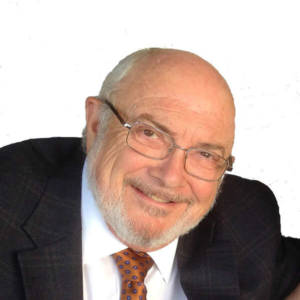Friday Filosophy v.07.15.2022
Friday Filosophy v.07.15.2022
Lieutenant-General Robert Stephenson Smyth Baden-Powell, 1st Baron Baden-Powell, OM, GCMG, GCVO, KCB, KStJ, DL 22 February 1857 – 8 January 1941 was a British Army officer, writer, founder and first Chief Scout of the world-wide Scout Movement, and founder, with his sister Agnes, of the world-wide Girl Guide/Girl Scout Movement. Baden-Powell authored the first editions of the seminal work Scouting for Boys, which was an inspiration for the Scout Movement.
Educated at Charterhouse School, Baden-Powell served in the British Army from 1876 until 1910 in India and Africa. In 1899, during the Second Boer War in South Africa, Baden-Powell successfully defended the town in the Siege of Mafeking. Several of his books, written for military reconnaissance and scout training in his African years, were also read by boys. In August 1907, he held a demonstration camp, the Brownsea Island Scout camp, which is now seen as the beginning of Scouting. Based on his earlier books, particularly Aids to Scouting, he wrote Scouting for Boys, published in 1908 by Sir Arthur Pearson, for boy readership. In 1910 Baden-Powell retired from the army and formed The Scout Association.
The first Scout Rally was held at The Crystal Palace in 1909. Girls in Scout uniform attended, telling Baden-Powell that they were the “Girl Scouts”. In 1910, Baden-Powell and his sister Agnes Baden-Powell started the Girl Guide and Girl Scout organization. In 1912 he married Olave St Clair Soames. He gave guidance to the Scout and Girl Guide movements until retiring in 1937. Baden-Powell lived his last years in Nyeri, Kenya, where he died and was buried in 1941. His grave is a national monument.
- Try and leave this world a little better than you found it, and when your turn comes to die, you can die happy in feeling that at any rate, you have not wasted your time but have done your best.
- Swimming has its educational value – mental, moral, and physical – in giving you a sense of mastery over an element, and of power of saving life, and in the development of wind and limb.
- The most worth-while thing is to try to put happiness into the lives of others.
- Happiness doesn’t come from being rich, nor merely from being successful in your career, nor by self-indulgence. One step towards happiness is to make yourself healthy and strong while you are a boy so that you can be useful and so you can enjoy life when you are a man.
- Trust should be the basis for all our moral training.
- Nature study will show you how full of beautiful and wonderful things God has made the world for you to enjoy. Be contented with what you have got and make the best of it. Look on the bright side of things instead of the gloomy one.
- If you make listening and observation your occupation you will gain much more than you can by talk.
- My belief is that we were put into this world of wonders and beauty with a special ability to appreciate them, in some cases to have the fun of taking a hand in developing them, and also in being able to help other people instead of overreaching them and, through it all, to enjoy life – that is, to be happy.
- If you make yourself indispensable to your employer, he is not going to part with you in a hurry no matter what it costs him.
- The best workers, like the happiest livers, look upon their work as a kind of game: the harder they play the more enjoyable it becomes.
- Correcting bad habits cannot be done by forbidding or punishment.
- An individual step in character training is to put responsibility on the individual.
- When you want a thing done, ‘Don’t do it yourself’ is a good motto for Scoutmasters.
- Erudition – that is, reading, writing, and arithmetic – is taught in the schools; but where is the more important quality, character, taught? Nowhere in particular. There is no authorized training for children in character.
- It always seems to me so odd that when a man dies, he takes out with him all the knowledge that he has got in his lifetime whilst sowing his wild oats or winning successes. And he leaves his sons or younger brothers to go through all the work of learning it over again from their own experience.
The Time is Now
Did you enjoy this blog? Read more great blog posts here.
For our course lists, please click here.


